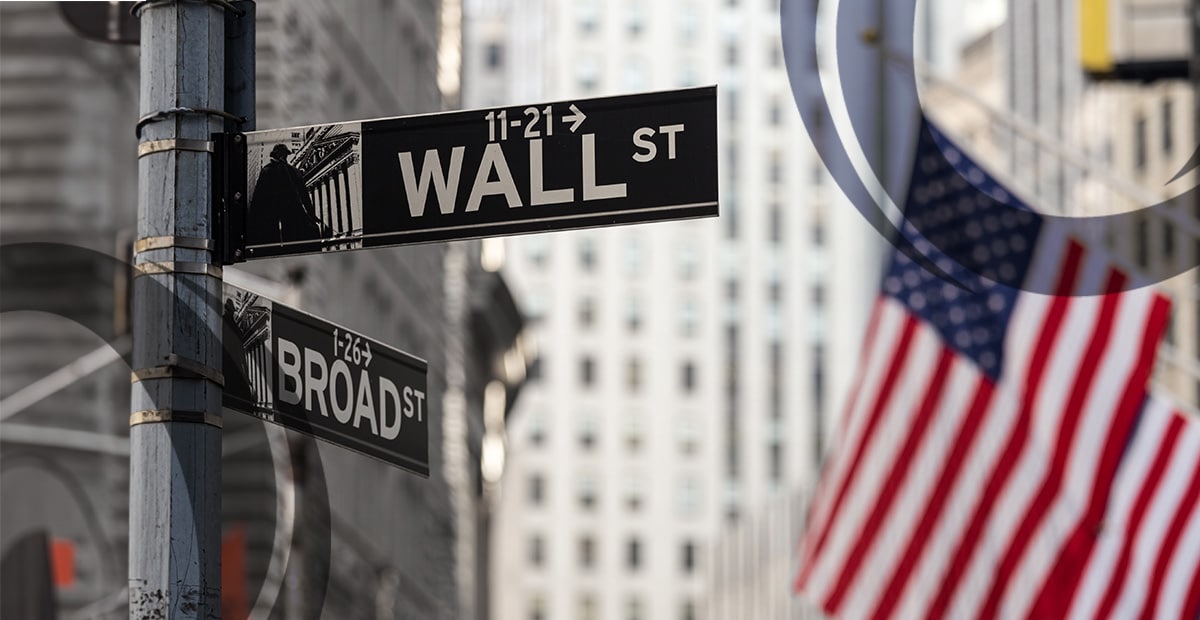Please fill out the details below to receive information on Blue Wealth Events
"*" indicates required fields

Often depicted in movies as the pinnacle of the financial world and constantly popping up in our weekly news broadcasts, Wall Street symbolizes financial power and influence, but what exactly is it?
Wall Street is more than just a street in Lower Manhattan, New York. It’s the beating heart of the American financial system. This bustling epicenter is home to some of the world’s largest financial institutions, including banks, stock exchanges, and investment firms.
The New York Stock Exchange’s history traces back to the signing of the Buttonwood Agreement by twenty-four New York City stockbrokers and merchants on May 17, 1792, under a Buttonwood tree outside 68 Wall Street.
This agreement organized securities trading in New York City and marked the beginning of the New York Stock Exchange.
At its core, Wall Street serves as the center of the stock market in the United States. The New York Stock Exchange (NYSE) and NASDAQ*, two of the most prominent stock exchanges globally, are based here. These exchanges provide a platform for buying and selling shares of publicly traded companies.
Investment banks, another crucial component of Wall Street, help companies raise capital by issuing stocks and bonds. They facilitate mergers, acquisitions, and other complex financial transactions for corporations. In turn, these institutions play a pivotal role in shaping the economy by providing financial advice and services to businesses of all sizes.
Financial experts who operate on Wall Street manage hedge funds and mutual funds. These funds pool money from various investors and strategically invest it across different assets like the stocks, bonds, and commodities we already talked about. Their goal is obvious: to generate returns for their investors, although their strategies and risk levels vary widely.
*Nasdaq: National Association of Securities Dealers Automated Quotations.
Historic highs and lows
The term “Wall Street” has transcended geographic boundaries to represent the broader financial industry, including all its highs and lows. The street has seen historic booms and devastating crashes, shaping the global economy.
The Great Depression of 1929, triggered by the stock market crash, originated from activities on Wall Street. The financial crisis in 2008, rooted in risky lending practices and U.S housing market collapses, originated partly from actions taken on Wall Street. The fallout from these events reverberated globally, leading to widespread economic downturns and highlighting the substantial impact Wall Street can have on the world’s financial health.
The people working on Wall Street are often stereotyped as power brokers and high-flying financiers. Investment bankers, traders, analysts, and brokers are among the many professionals who make up this financial hub. They spend their time analyzing market trends, evaluating investment opportunities, and then executing trades on behalf of their clients. Sometimes they get it all wrong.
The ups and downs Controversy and complexities
While Wall Street exerts considerable influence on global finance, it’s not without controversy. Criticisms often focus on its perceived role in income inequality, as some believe that the financial sector’s gains disproportionately benefit a select few. Additionally, concerns about market manipulation, conflicts of interest, and ethical lapses have sparked debates about regulation and accountability within the industry.
Understanding Wall Street is crucial because it has effects on everyone, directly or indirectly. The stock market’s performance can impact retirement savings, job opportunities, and economic stability. Economic policies, corporate decisions, and global financial trends intersect on this famous street, making it a barometer of financial health.
Wall Street represents the engine that drives major economies forward. Its institutions facilitate the flow of capital, enable businesses to grow, and provide individuals with investment opportunities. However, its complexities and occasional controversies highlight the need for transparency, regulation, and responsible financial practices to ensure stability and fairness in the financial world.
Eyes of the world:
The impact of Wall Street extends beyond stock markets. The decisions made there influence interest rates, currencies, and even worldwide government policies. Central banks around the world closely monitor Wall Street activities, as they can influence the stability of their own economies. For instance, if Wall Street experiences a significant downturn, it might prompt other central banks to adjust their interest rates or implement other measures to stabilize their local economies.
The connection of global financial markets means that what happens on Wall Street doesn’t stay confined to its physical location. News of a major economic event or a shift in investor confidence on Wall Street can and will quickly travel worldwide, affecting markets in Asia, Europe, and elsewhere for the positive and the negative. This link underscores Wall Street’s significant pull in shaping the broader global financial landscape.
Owun
Knowledge is Power
Owun is the Senior Education Specialist at Blue Wealth Property and hosts The Clever Investor podcast. He has worked in finance and property for well over 20 years and is known for being able to explain the complex world of wealth and finance easily.
